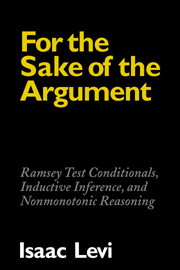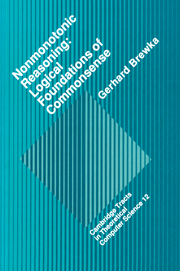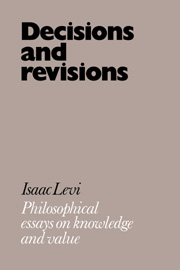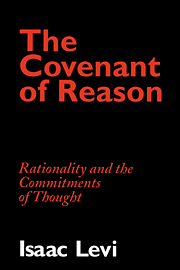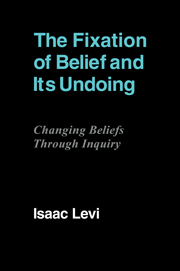For the Sake of the Argument
This book offers an account of suppositional reasoning relevant to practical deliberation, explanation, prediction and hypothesis testing. In arguing that supposition plays a far greater role in deliberation and decision than it is given credit for, this major study will be required reading for all philosophers and logicians concerned with conditionals, decision theory and inductive inference. It will also interest those in artificial intelligence who work on expert systems, default reasoning, and nonmonotonic reasoning.
- Major selling point is that this is a book by Isaac Levi, one of the foremost authorities in epistemology and logic
- Aimed principally at philosophers, it will also interest those working in artificial intelligence
Reviews & endorsements
"The book is recommended reading for philosophers and logicians concerned with conditional logics and inductive inference and will interest researchers in artificial intelligence involved in nonmonotonic reasoning and belief revision." A. Florea, Computing Reviews
"The book is recommended reading for hilosophers and logicians concerned with conditional logics and inductive inference and will interest researchers in artificial intelligence involved in nonmonotonic reasoning and belief revision." A. Florea, Computing Reviews
"This is no doubt a major contribution..." Otavio Bueno, Mathematical Reviews
"This is in itself valuable. Philosophers will find in this book a conscientious and by and large successful attempt to come to terms with some of the basic work in nonmonotonic reasoning, and to render it in language that is familiar to them." Michael Morreau, Jrnl of Philosophy
Product details
August 2007Paperback
9780521039017
364 pages
228 × 151 × 20 mm
0.535kg
Available
Table of Contents
- Preface
- 1. Introduction
- 2. Unextended Ramsey tests
- 3. Modality without modal ontology
- 4. Aspects of conditional logic
- 5. Nonmonotonicity in belief change and suppositional reasoning
- 6. Inductive expansion
- 7. Defaults
- 8. Matters of degree
- 9. Normality and expectation
- 10. Agents and automata
- Notes
- Bibliography
- Name index
- Subject index.

